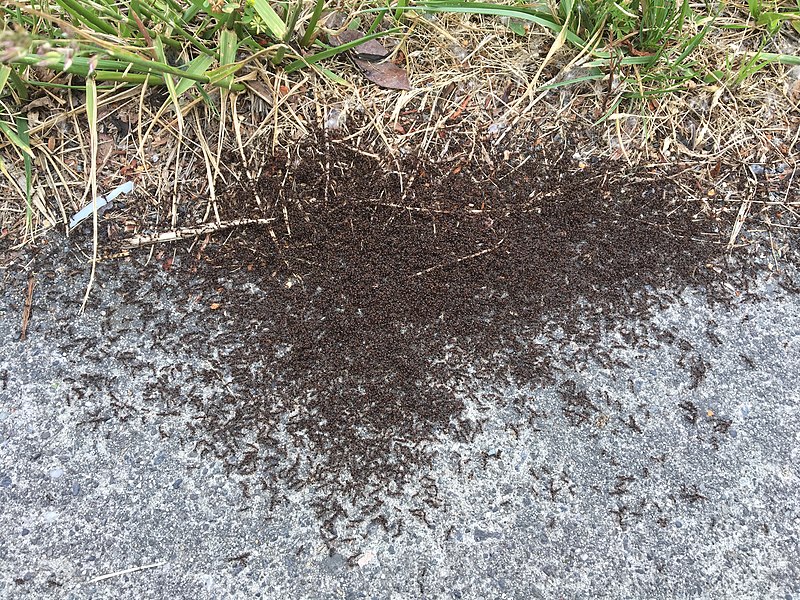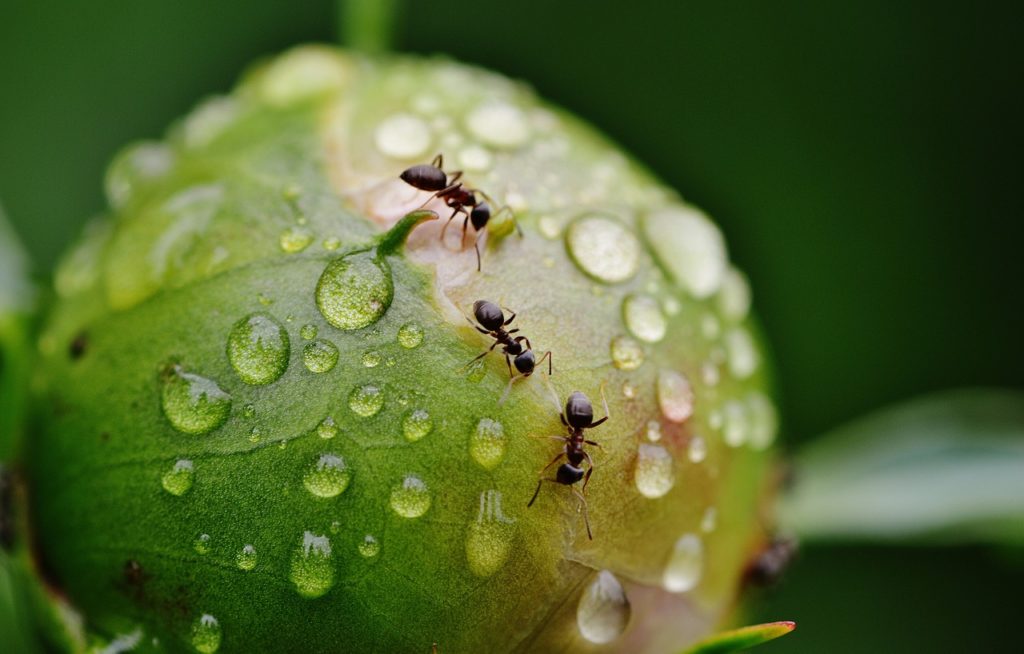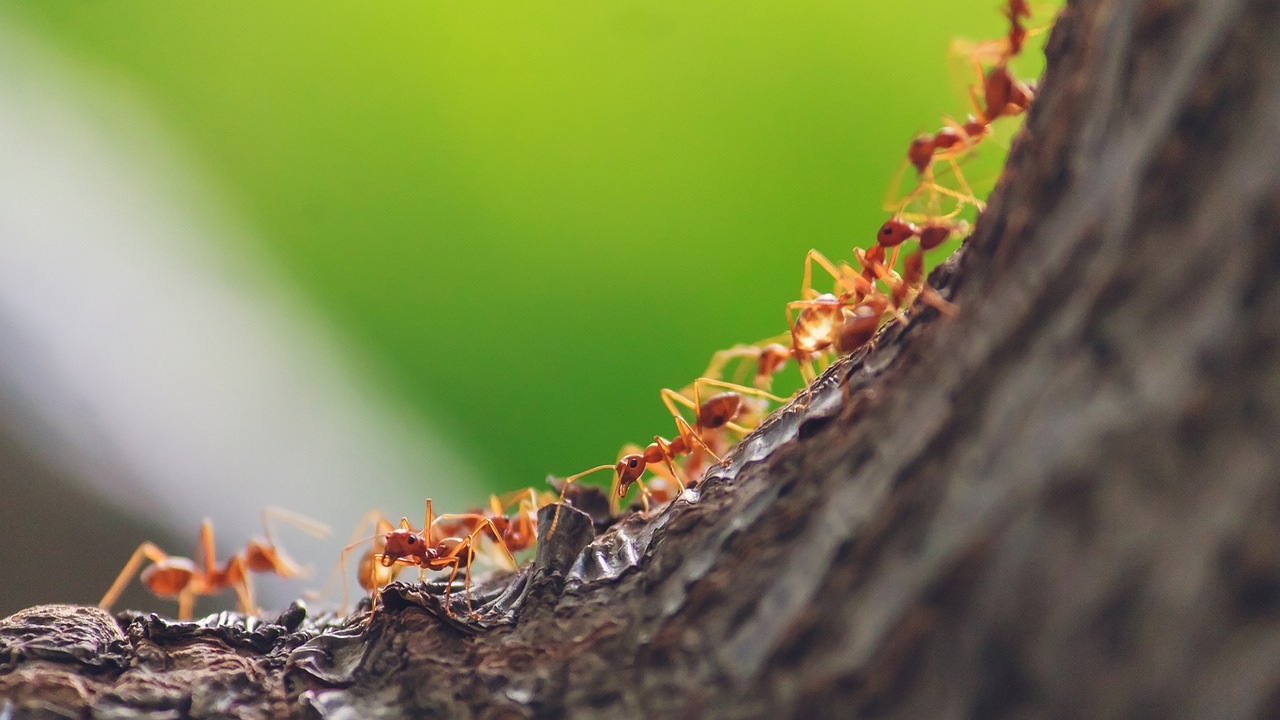Some pests are seasonal. For example, you are more vulnerable to yellow jacket infestations during the summer. But what about ants? Is there really such a thing as ant season? If so, when is it? These small insects seem to thrive all year round, so determining an ant season is difficult. Maybe you can’t see or feel it, but ants are actually more active in particular months of the year.
Ant season facts
- Ants thrive in the warmer months of the year. There is no real “ant season.” They can invade your home in whatever part of the year, whether it be in the warmth of summer or the cold of winter. They are resilient pests that can surpass whatever nature throws at them. That being said, ants do thrive the most in spring, summer, and fall, where it is generally warmer. If you are going to experience an ant infestation, it’s probably during these parts of the year. But this doesn’t mean you are completely safe during winter.
- They hibernate in the winter. During winter, ants try to find a warm place where they can settle. They can start burrowing deep into the ground and hibernate. But they can also thrive during this part of the year, and that’s why there is no real “ant season.” They can build nests in concrete slabs, under rocks, and even inside human homes to find warmth. Those who fail to do such adjustments just die off, but those who survive can cause home infestations.
- There are many different kinds of ants that can infest your home. For most people, there are just two kinds of ants — the black ones and the red ones. But ants are more diverse than that. There are actually many different ant species that can infest your home. They all have different characteristics and habits, which means they also require different pest control methods. You can get rid of some ant species yourself, but others, like fire ants, should be handled by professionals because they can be dangerous.

How to prepare for ant season
- Put all your food items in containers. Avoid ant infestations, especially during the warmer months of the year when your home is at its most vulnerable. One way to avoid them is to make ant attractors inaccessible. And what attracts ants more than food? Make your food inaccessible by putting them in containers instead of just letting them be out in the open in your dining area and kitchen. Use containers that can’t easily be chewed on, like those made of glass or metal. You can also put food in cabinets and refrigerators. And don’t forget about pet food. They can attract ants as well.
- Seal all cracks and holes. The average ant is only about 3.7 mm long. This means they can go through the smallest cracks and holes in your walls and the tiniest gaps at the edges of your doors and windows. Prepare for the so-called “ant season” by sealing all these cracks and holes with caulk. You can also put weatherstrips on the edges of your doors and windows to prevent ants from getting through. This is particularly important because ants are known to thrive in windows as well, especially if the windows are near tree branches.
- Keep your bathrooms and kitchens clean and dry. Ants don’t just need food. They also need water to survive. Unfortunately, there are a lot of water sources around your home. And sometimes, it’s difficult to keep these water sources inaccessible to ants. Bathrooms and kitchens come to mind. Bathrooms naturally become moist as you do your daily activities. And kitchens will have droplets and pools all over as you cook and clean. To avoid ant infestations, always keep these parts of your home clean and dry.

How to get rid of ant infestations
- Use commercial products. Some scholars say you shouldn’t even bother trying to prevent ant infestations. They are kind of inevitable. Luckily, there are a lot of commercial products you can buy to get rid of ants. The most common ones are ant baits and insecticides. Ant baits work because they are toxic to ants. Insecticides work by attacking the nervous system of the insects and killing them. These products may be surefire ways to get rid of ants, but remember that they contain ingredients that can be harmful to you too. Be careful in using ant baits around children and household pets. And read the instructions on the insecticides for proper use.
- Try home remedies. The great thing about home remedies is that they are easily accessible. Their ingredients can already be found in your kitchen. For instance, you can make a DIY ant bait by combining boric acid and powdered sugar. You can also make a DIY insecticide by mixing essential oils and water. But home remedies have a downside too. Their effectiveness is limited, especially if you already have a severe ant infestation on your hands.
- Call pest control professionals. The best way to get rid of pest infestations is always through pest control professionals. You may think that ants are not really pests that urgently need to be eliminated. But ants can be dangerous too. They can bite and sting, contaminate food, and cause structural damage. Carpenter ants and fire ants are some of the kinds of ants you should be really concerned about because they magnify these dangers.
There is really no “ant season”
Some household pests are seasonal, but not ants. They can invade your home at whatever time of the year. But if you really want to determine an “ant season,” then it will be around spring, summer, and fall. But can you really call that ant season when it’s like 3/4th of an entire year? And it’s not like all ants die off during winter. Your home is still vulnerable to ant invasions during the cold.
What you can do to prevent infestations is to hide ant attractors, especially food and water. And make your home inaccessible by covering the small passageways that connect your home to the outside world.

